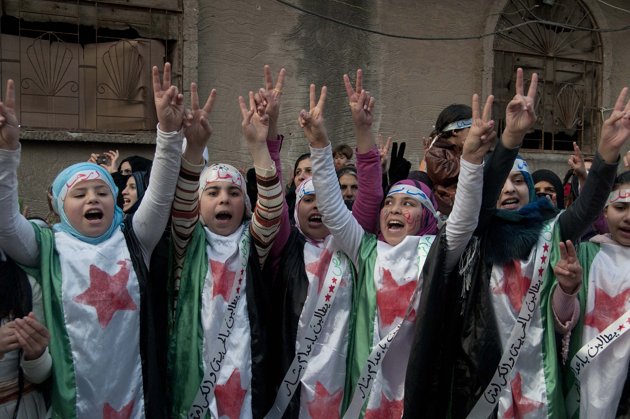
The Arab League is convening an emergency meeting in Cairo on Sunday to discuss the fate of its observer mission to Syria.
The meeting follows the Syrian regime's continuing brutality against protesters even after it promised cooperation with the Arab League’s observer mission, which aimed to stop the bloodshed and force the release of political prisoners. After the protocol was signed on 19 December, the Arab League sent 67 monitors to Syria, including doctors, members of human rights organizations, military experts, politicians and lawyers. This number is due to be increased to 150. The observatory committee was supposed to stay for a month, but could renew its mission for another month.
The observatory committee is headed by Sudanese General Mustafa al-Dabi, who used to head Sudan's military intelligence. His appointment caused controversy as activists have claimed that when he oversaw implementation of the Darfur Security Agreement in conflict-torn Western Sudan, he witnessed war crimes he was never held accountable for. This has left activists skeptical of the mission.
“I hope that the Arab League meeting will be the first clear signal that we have to move forward; we can’t let the regime in Syria develop tactics,” Salman Shaikh, a political expert on Middle East affairs, told Egypt Independent.
Over the last nine months not a day has passed without dozens of Syrians being killed by Bashar al-Assad’s regime. At least 6,237 are dead and 69,000 have been detained since the uprising began, which means that one in every 300 Syrians has either been killed or detained, according to the global campaigning organization Avaaz.
“No one knows the real number of the dead. There are tens of thousands missing, I receive hundreds of videos with unidentified martyrs … who are not registered in the official records,” Rami Jarrah, a Syrian activist, said.
It is unclear what the precise impact of the Arab observers in Syria has been, but Rami Abdel Rahman, the head of the Syrian Human Rights Observatory in London, said the number of deaths has decreased since the observers arrived.
However, Abdel Rahman is concerned about the number of Arab observers. “We had asked for hundreds of observers to monitor the streets in Syria, not tens,” he said. “We need people to feel safe to go demonstrate in the streets, which would result in the downfall of the regime eventually in a democratic way. The regime fears the observers."
In Cairo last week Arab League Secretary General Nabil al-Araby said the monitors reported that Syrian forces had withdrawn from residential areas. The mission is ensuring a halt to bloodshed and has secured the release of about 3,500 prisoners, he added. He admitted that there were still snipers on top of buildings.
Shaikh is skeptical about the mission’s success because he doesn’t believe the monitors have been given enough access.
"We have to question the professionalism of the mission, bearing in mind that the Arab League has not done something like this before,” Shaikh said.
“The regime did not try to stop the initiative, but instead engaged in a game of tactics with the observers and the Arab League to buy itself more time," he added. "Hundreds of people have been killed since the monitors arrived, probably 20 to 30 a day.”
Abdel Rahman sees the mission in a tighter lens, however. "The only benefit from the observer mission is that people who protest around the observers don’t get killed, nothing else.”
But Shaikh says Arab states should ask for international support for the mission, while leading states like Saudi Arabia and Egypt must engage Russia, the US, Europe and the UN to protect civilians in Syria. "We need to have greater international effort led by the Arabs," he said.




